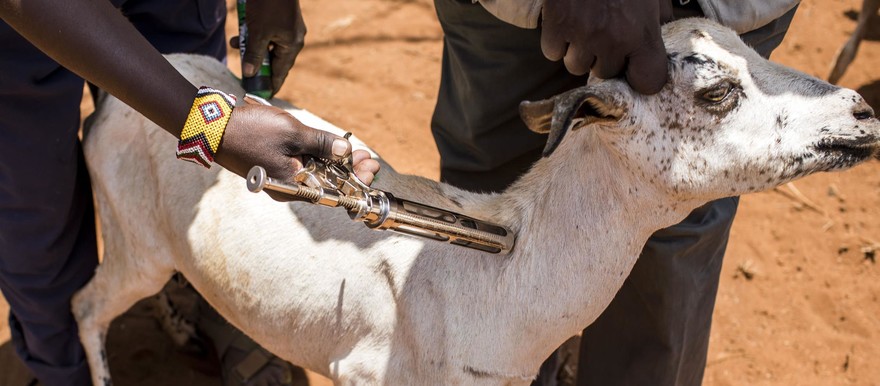The Food and Agriculture Organization of the United Nations (FAO), South Sudan’s Ministry of Livestock and Fisheries and partners are launching a new campaign to eradicate the Peste des Petits Ruminants (PPR) disease.
An e-launch ceremony was held this week in the presence of FAO staff in South Sudan and headquarters, the Intergovernmental Authority on Development (IGAD), the African Union Inter-African Bureau for Animal Resources (AU IBAR), the Ministry of Livestock and Fisheries (South Sudan) and key donors.
The PPR vaccination campaign for the period 2020 – 2023 is in line with the Global Control and Eradication Strategy that was developed by FAO and the World Organization for Animal Health (OIE) and endorsed in April 2015 with the vision for global PPR eradication by 2030. The campaign is also part of the South Sudan PPR National Strategic plan.
Peste des Petits Ruminants (PPR), also known as sheep and goat plague, is a widespread, virulent and devastating disease affecting small ruminants. South Sudan has a population of about 25 million small ruminants, which are typically owned by poorer households.
“This eradication campaign will considerably improve the conditions of the most vulnerable communities of South Sudan whose livelihoods have already been challenged by years to conflict and insecurity,” said the Minister of Livestock and Fisheries Onyoti Adigo Nyikwec.
The disease can affect up to 90 percent of a herd and kill up 80 percent of infected animals, resulting in significant economic impacts on food security and livelihoods.
“In South Sudan animals mean life. This campaign, with an ambition to eradicate PPR, is a turning point for animal health and the food security of pastoralist communities of South Sudan,” said FAO Representative in South Sudan Meshack Malo. “A one-time vaccination can protect sheep and goats for life, safeguarding the livelihoods of vulnerable communities.”
Berhe Tekola, the Director of FAO Animal Production and Health Division, said: “The control and eradication of the disease is technically achievable. It is readily diagnosed and a reliable vaccine is available which confers lifelong immunity to vaccinated animals.”




